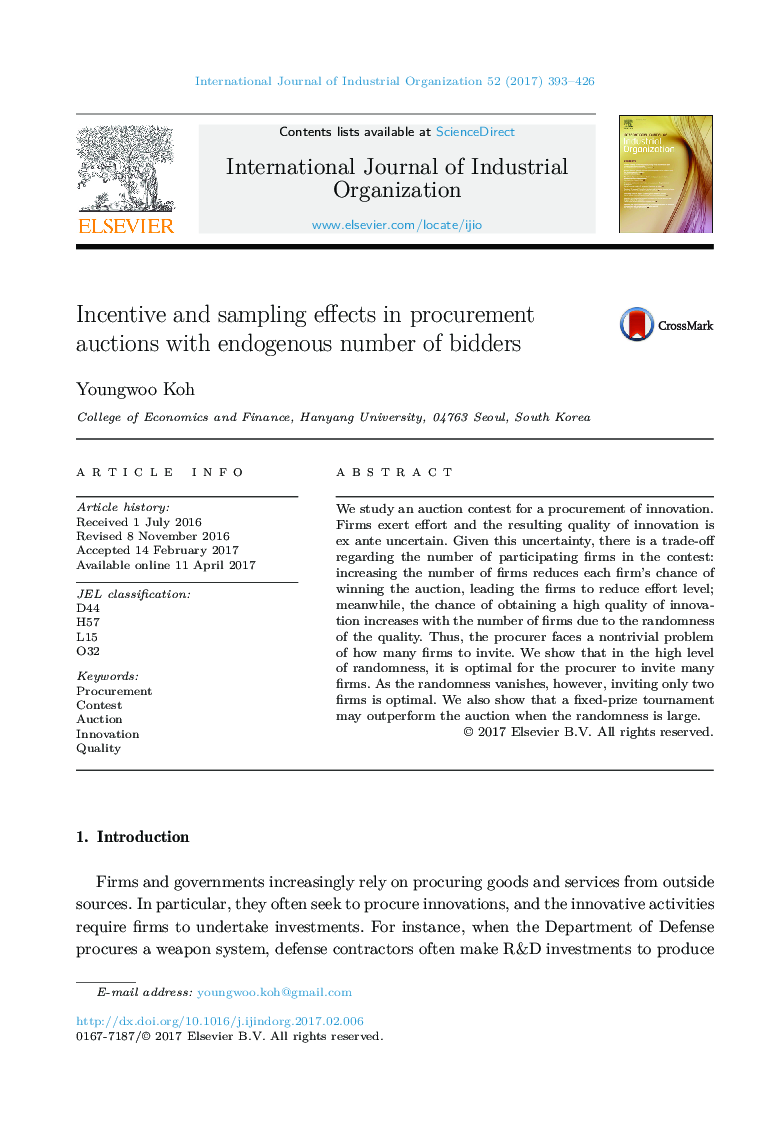| Article ID | Journal | Published Year | Pages | File Type |
|---|---|---|---|---|
| 5077763 | International Journal of Industrial Organization | 2017 | 34 Pages |
â¢Firms exert effort and the resulting quality of innovation is ex ante uncertain in an auction contest.â¢If there are too many firms, then each of them is discouraged from expanding their investment but the buyer has a higher chance of having a high quality innovation.â¢For a large randomness, it is optimal for the buyer to invite many firms.â¢When the randomness vanishes, inviting only two firms is optimal.â¢A fixed-prize tournament may outperform the auction when the randomness is large.
We study an auction contest for a procurement of innovation. Firms exert effort and the resulting quality of innovation is ex ante uncertain. Given this uncertainty, there is a trade-off regarding the number of participating firms in the contest: increasing the number of firms reduces each firm's chance of winning the auction, leading the firms to reduce effort level; meanwhile, the chance of obtaining a high quality of innovation increases with the number of firms due to the randomness of the quality. Thus, the procurer faces a nontrivial problem of how many firms to invite. We show that in the high level of randomness, it is optimal for the procurer to invite many firms. As the randomness vanishes, however, inviting only two firms is optimal. We also show that a fixed-prize tournament may outperform the auction when the randomness is large.
